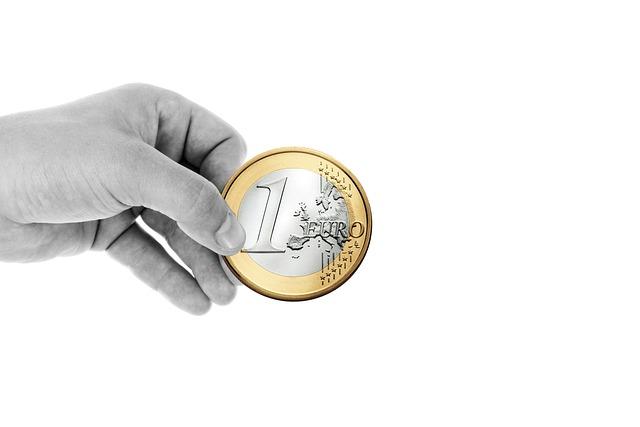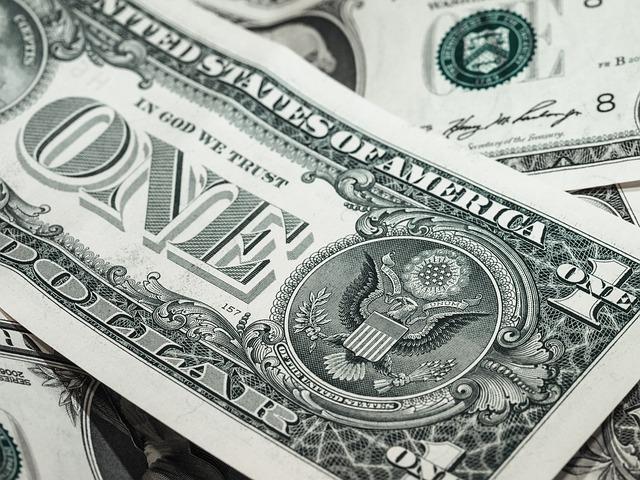Starting your financial journey can feel a bit like trying to decode a secret language — all those terms like “interest rates,” “budgets,” and “investments” might make your head spin. But don’t worry, getting a handle on your money doesn’t have to be elaborate or intimidating. Weather you’re fresh out of school, just landed your first job, or simply want to get smarter about handling cash, this Finance 101 guide is here to help. We’re breaking down easy, practical tips that anyone can follow to start managing money like a pro — no jargon, no stress, just simple advice to set you on the right track. Let’s dive in!
getting Your Budget On Track Without Feeling Overwhelmed
Taking control of your finances doesn’t have to feel like climbing a mountain. Start small by breaking down your expenses into easy categories — think essentials,fun,and savings. This simple snapshot gives you clarity without drowning you in numbers. Use apps or even a plain notebook to track what you spend daily. The key is consistency, not perfection. When you see where your money is going, you’ll find natural places to cut back without sacrificing your joy or peace of mind.
One of the best ways to stay motivated is setting achievable goals and rewarding yourself for hitting milestones. Here’s a rapid starter checklist you can bookmark:
- Create a basic budget template – no fancy software needed!
- Identify one subscription or expense to trim this month
- set a weekly spending limit for non-essentials
- Automate your savings, even if it’s just a small amount
- Review and tweak your budget at the end of the month
| Budget Category | Suggested % of Income |
|---|---|
| Essentials | 50% |
| Savings | 20% |
| Fun & Discretionary | 30% |

Smart Ways to Build Credit That Actually Work
Building good credit doesn’t have to feel like rocket science.A few smart habits can get your score climbing fast. Start by paying your bills on time—every time. Even one late payment can ding your credit, so setting up automatic payments or reminders is a game-changer. Another hack? Keep your credit utilization low.Aim to use less than 30% of your available credit to show lenders you’re responsible with borrowing. If you’re just starting out, consider applying for a secured credit card or becoming an authorized user on a trusted family member’s account to kick things off safely.
Tracking your progress is key, so check your credit reports regularly for free using official sites like AnnualCreditReport.com. Catching errors early can save you from unneeded troubles down the line. Here’s a quick table with a few do’s and don’ts to keep your credit-building journey smooth:
| Do | Don’t |
|---|---|
| Make small monthly purchases and pay them off | Max out your cards |
| Keep old accounts open to build history | Apply for multiple cards at once |
| Use credit to cover essentials, then repay | Ignore monthly statements |

Simple Saving hacks to Boost Your Emergency Fund
Building a cushion for unexpected expenses doesn’t have to be complicated. Start by making small adjustments to your daily routines—skip that extra coffee run or dine out a bit less each week. Even saving just $5 a day adds up faster than you think.Use cash-back apps or round-up features on your bank app to save passively without feeling the pinch. The key is to make saving a habit, not a chore.
Another fun trick is to challenge yourself with mini savings goals. For example, try a “no-spend weekend” or stash money each time you find a deal—then watch your emergency fund grow guilt-free. here’s a quick cheat sheet for easy saving habits:
- Automate transfers: Set a fixed amount to move each payday.
- Sell old stuff: Declutter and make money simultaneously occurring.
- Unsubscribe: Cut recurring subscriptions you don’t use.
| Saving Hack | How it Helps | Weekly Impact |
|---|---|---|
| Skip Coffee Runs | Save $3-$5 daily | $15-$25 |
| Automate Transfers | Hands-off saving | $20-$50 |
| Sell Unused Items | Extra cash boost | $10-$30 |
Investing Basics Explained So You Don’t Get Confused
Starting with investing can feel like jumping into a vast ocean without a life jacket, but it doesn’t have to be that way.The key is to break down complex terms and ideas into bite-sized chunks. first, understand that investing isn’t about getting rich overnight; it’s about growing your money steadily over time. Think of it as planting seeds — with patience and the right care, those seeds will eventually turn into a fruitful tree. A good place to begin is by focusing on diversification, which means spreading your money across different types of investments to reduce risk. whether it’s stocks, bonds, or mutual funds, mixing your portfolio protects you when one market dips.
Here’s a quick cheat sheet to help you remember some key investing concepts:
- Risk vs. Reward: Higher gains usually mean higher risks, so find your comfort zone.
- Compounding: Reinvesting your earnings can snowball your wealth over time.
- Time Horizon: The longer you invest, the more you can take advantage of market ups and downs.
- Fees Matter: Keep an eye on management fees—they can eat into your returns.
| Investment Type | risk Level | Ideal For |
|---|---|---|
| Stocks | High | Long-term growth seekers |
| Bonds | Low to Medium | Stable income investors |
| Mutual Funds | Medium | Diversification beginners |
| ETFs | Medium | Cost-conscious traders |
Avoiding Common Money Mistakes Every Beginner Makes
One of the biggest traps beginners fall into is living paycheck to paycheck without a clear budget. It’s easy to underestimate how small, everyday expenses add up — coffee runs, subscriptions you forgot about, or spontaneous online shopping. To dodge this, start by tracking your spending for a month. This simple habit highlights where your money is really going and helps you spot unnecessary expenses. Remember, budgeting isn’t about restricting fun; it’s about giving you more control and freedom in the long run.
Another common slip-up? Skipping an emergency fund because it feels boring or too small to matter. But emergencies don’t wait for a perfect time! Even setting aside $20 a week creates a financial cushion that can save you from debt later on. Here’s a quick rundown of typical beginner mistakes and easy fixes:
- Ignoring credit scores: Your credit affects everything from loans to apartment applications. check it regularly and pay bills on time.
- Rushing into investments: take time to learn before putting money into stocks or crypto. No sudden moves!
- Overusing credit cards: Use credit, but pay the full balance every month to avoid interest piling up.
| Mistake | Easy Fix |
|---|---|
| Impulse Shopping | Set a 24-hour rule before big buys |
| Skipping Emergency Fund | Automate small weekly deposits |
| Not tracking Expenses | Use a budgeting app or notebook |
Q&A
Finance 101: Easy Tips for Newbies to Get Started Right – Q&A
Welcome to your quick and kind guide to tackling personal finance without the headache! Whether you’re fresh out of school, starting a new job, or just tired of feeling clueless about money, these simple Q&A will get you on the right track.
Q: I barely understand finance. where should I start?
A: Start simple! Think of finance like a recipe—begin with the basics: budgeting, saving, and understanding your expenses. Track what you earn and spend for a month using an app or even a notebook. Knowing where your money goes is step one to taking control.
Q: What’s the easiest way to create a budget?
A: The 50/30/20 rule is a great beginner-friendly method. Aim to spend 50% of your income on needs (rent, utilities, groceries), 30% on wants (dining out, hobbies), and put 20% towards savings or debt repayment. Adjust as you learn what works for you!
Q: how much should I be saving each month?
A: If possible, try to save at least 20% of your income—but even starting with 5-10% is great.The key is consistency. Automate your savings so the money moves to your savings account right when you get paid. Out of sight, out of mind!
Q: Should I avoid debt completely?
A: Not necessarily. Some debt is useful, like a mortgage or student loans, because they’re investments in your future. But watch out for high-interest debt like credit cards.Always pay those off ASAP; they can spiral quickly and wreck your budget.
Q: What’s an emergency fund and why do I need one?
A: An emergency fund is a stash of cash (usually 3-6 months’ worth of living expenses) set aside for unexpected events—think job loss, medical bills, or urgent car repairs. It’s your financial safety net, so you’re not stressed out if life throws a curveball.
Q: How can I start investing if I don’t know much about it?
A: Great question! start small. Look into low-cost index funds or ETFs that track the market. Many apps let you invest with just a few dollars. The most important thing? Start early and be consistent. Over time,compound interest can do wonders—even if you’re investing tiny amounts.
Q: Any tips to avoid common money mistakes?
A: Absolutely! Don’t live paycheck to paycheck—plan ahead. Avoid impulse buys by waiting 24 hours before big purchases. Don’t ignore your bills or credit score; both matter more than you think. And remember: it’s okay to ask for help—financial advice is a smart move, not a weakness.
Q: Where can I learn more without getting overwhelmed?
A: There are tons of friendly finance blogs, podcasts, and YouTube channels made for beginners. Some popular ones include “The Financial diet,” “bogleheads Forum,” and podcasts like “Planet Money.” Just pick one resource and stick with it for a few weeks. learning is a journey!
Got more questions or personal finance struggles? Drop a comment below—let’s tackle money stuff together!
To Wrap It Up
And there you have it—some simple, no-nonsense tips to kickstart your finance journey without the stress. Remember, getting your money matters in order doesn’t have to be complicated or scary. Start small, stay consistent, and don’t be afraid to ask questions along the way. The sooner you get cozy with your finances, the sooner you’ll see those positive changes rolling in. Happy money managing, newbies—you’ve got this!










